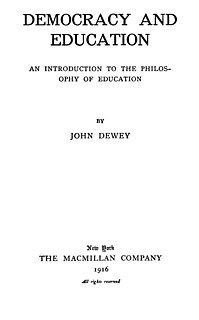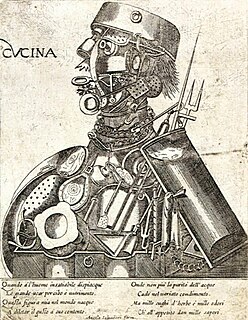
The GNU Manifesto was written by Richard Stallman and published in March 1985 in Dr. Dobb's Journal of Software Tools as an explanation of goals of the GNU Project, and as a call for support and participation in developing GNU, a free software computer operating system. It is held in high regard within the free software movement as a fundamental philosophical source.

A manifesto is a published declaration of the intentions, motives, or views of the issuer, be it an individual, group, political party or government. A manifesto usually accepts a previously published opinion or public consensus or promotes a new idea with prescriptive notions for carrying out changes the author believes should be made. It often is political or artistic in nature, but may present an individual's life stance. Manifestos relating to religious belief are generally referred to as creeds.

The Communist Manifesto, originally the Manifesto of the Communist Party, is an 1848 political pamphlet by the German philosophers Karl Marx and Friedrich Engels. Commissioned by the Communist League and originally published in London just as the Revolutions of 1848 began to erupt, the Manifesto was later recognised as one of the world's most influential political documents. It presents an analytical approach to the class struggle and the conflicts of capitalism and the capitalist mode of production, rather than a prediction of communism's potential future forms.

Rosicrucianism is a spiritual and cultural movement which arose in Europe in the early 17th century after the publication of several texts which purported to announce the existence of a hitherto unknown esoteric order to the world and made seeking its knowledge attractive to many. The mysterious doctrine of the order is "built on esoteric truths of the ancient past", which "concealed from the average man, provide insight into nature, the physical universe, and the spiritual realm." The manifestos do not elaborate extensively on the matter, but clearly combine references to Kabbalah, Hermeticism, alchemy, and mystical Christianity.

SCUM Manifesto is a radical feminist manifesto by Valerie Solanas, published in 1967. It argues that men have ruined the world, and that it is up to women to fix it. To achieve this goal, it suggests the formation of SCUM, an organization dedicated to overthrowing society and eliminating the male sex. The Manifesto is based on philosophical and social concerns. It has been reprinted at least 10 times in English, translated into 13 languages, and excerpted several times.

"A Cyborg Manifesto" is an essay written by Donna Haraway and published in 1985 in the Socialist Review. In it, the concept of the cyborg is a rejection of rigid boundaries, notably those separating "human" from "animal" and "human" from "machine". She writes: "The cyborg does not dream of community on the model of the organic family, this time without the oedipal project. The cyborg would not recognize the Garden of Eden; it is not made of mud and cannot dream of returning to dust."
The Winnipeg Declaration was the programme adopted by the Co-operative Commonwealth Federation (CCF) in Canada to replace the Regina Manifesto. Its full name is the "1956 Winnipeg Declaration of Principles of the Co-operative Commonwealth Federation" and it was adopted at the party's national convention held that year in Winnipeg, Manitoba.
Three Surrealist Manifestos were issued during the Surrealist movement, in 1924 and 1929. Two were written by André Breton, who also drafted a third Surrealist manifesto which was never issued. One was written by Yvan Goll (1924).
Humanist Manifesto is the title of three manifestos laying out a Humanist worldview. They are the original Humanist Manifesto, the Humanist Manifesto II (1973), and Humanism and Its Aspirations. The Manifesto originally arose from religious Humanism, though secular Humanists also signed.
The Declaration of Constitutional Principles was a document written in February and March 1956, in the United States Congress, in opposition to racial integration of public places. The manifesto was signed by 101 congressmen from Alabama, Arkansas, Florida, Georgia, Louisiana, Mississippi, North Carolina, South Carolina, Tennessee, Texas, and Virginia. The document was drafted to counter the landmark Supreme Court 1954 ruling Brown v. Board of Education, which determined that segregation of public schools was unconstitutional. School segregation laws were some of the most enduring and best-known of the Jim Crow laws that characterized the American South and border states at the time.

The 1890 Manifesto is a statement which officially advised against any future plural marriage in The Church of Jesus Christ of Latter-day Saints. Issued by church president Wilford Woodruff in September 1890, the Manifesto was a response to mounting anti-polygamy pressure from the United States Congress, which by 1890 had disincorporated the church, escheated its assets to the U.S. federal government, and imprisoned many prominent polygamist Mormons. Upon its issuance, the LDS Church in conference accepted Woodruff's Manifesto as "authoritative and binding."
The Manifesto of Prague is a historic document that establishes a set of seven widely shared principles of the Esperanto movement. It was drafted at the 1996 World Esperanto Congress in Prague by officials from the United Nations Educational, Scientific and Cultural Organization (UNESCO) and those attending the congress. The document emphasizes democratic communication, language rights, preservation of language diversity, and effective language education.
Freedom of information legislation in the United Kingdom is controlled by two Acts of the United Kingdom and Scottish Parliaments respectively, which both came into force on 1 January 2005.

Georges Ribemont-Dessaignes was a French writer and artist associated with the Dada movement. He was born in Montpellier and died in Saint-Jeannet.

An art manifesto is a public declaration of the intentions, motives, or views of an artist or artistic movement. Manifestos are a standard feature of the various movements in the modernist avant-garde and are still written today. Art manifestos are sometimes in their rhetoric intended for shock value, to achieve a revolutionary effect. They often address wider issues, such as the political system. Typical themes are the need for revolution, freedom and the implied or overtly stated superiority of the writers over the status quo. The manifesto gives a means of expressing, publicising and recording ideas for the artist or art group—even if only one or two people write the words, it is mostly still attributed to the group name.
Mundane science fiction is a subgenre of hard science fiction which is characterized by its setting on Earth or within the Solar System, and a lack of interstellar travel, intergalactic travel or human contact with extraterrestrials.
The Financial Modelers' Manifesto was a proposal for more responsibility in risk management and quantitative finance written by financial engineers Emanuel Derman and Paul Wilmott. The manifesto includes a Modelers' Hippocratic Oath. The structure of the Financial Modelers' Manifesto mirrors that of The Communist Manifesto of 1848.

A Short History of the World is a period-piece non-fictional historic work by English author H. G. Wells first published by Cassell & Co, Ltd Publishing in 1922. It was first published in Penguin Books in 1936. It was republished under Penguin Classics in 2006. The book was largely inspired by Wells's earlier 1919 work The Outline of History.

Principles of Communism is a brief 1847 work written by Friedrich Engels, the co-founder of Marxism. It is structured as a catechism, containing 25 questions about communism for which answers are provided. In the text, Engels presents core ideas of Marxism such as historical materialism, class struggle, and proletarian revolution. Principles of Communism served as the draft version for the Communist Manifesto.
The Messenian Senate was the first government of the Greek Revolution. It was the first move towards the creation of the Peloponnesian Senate.












